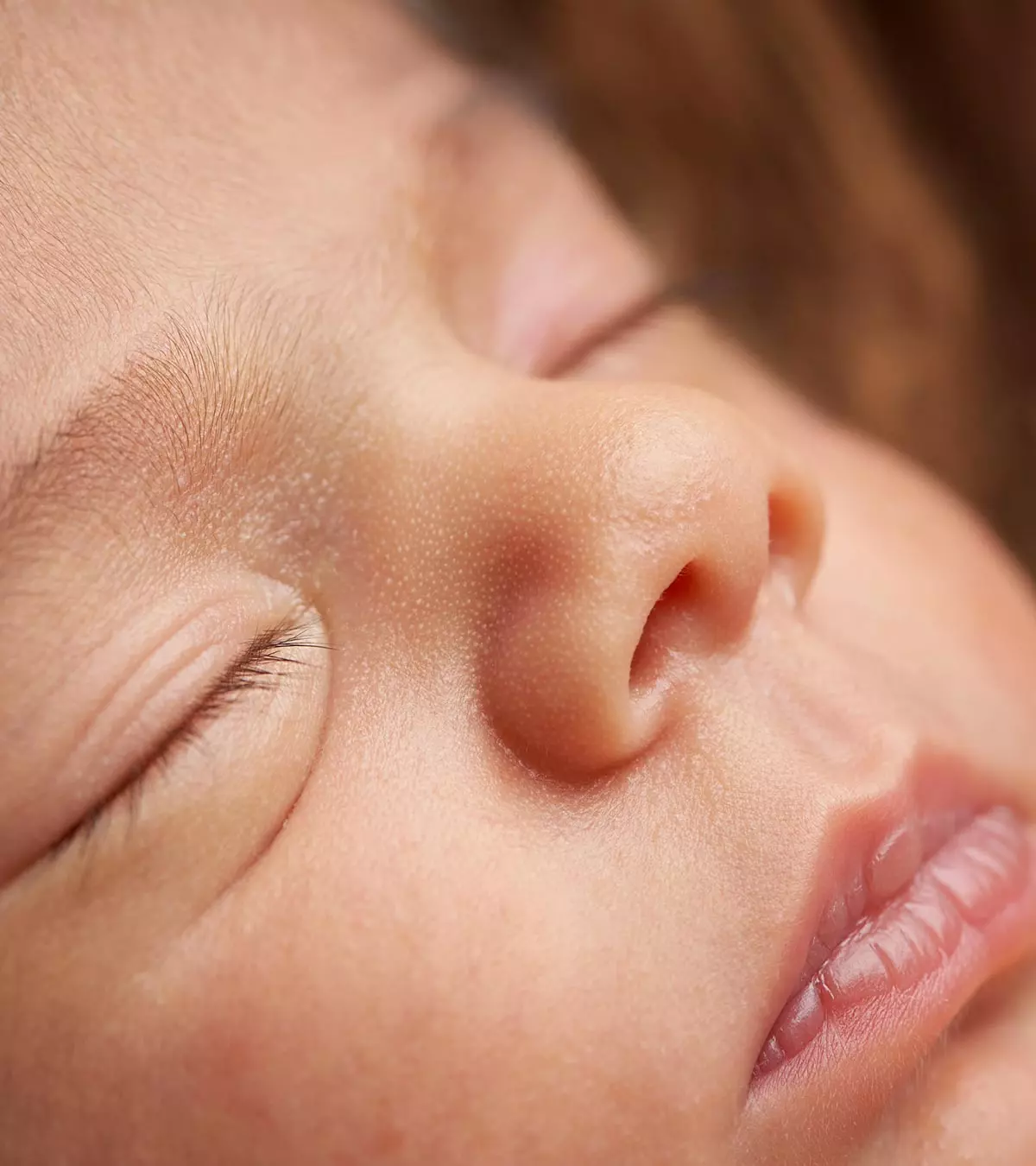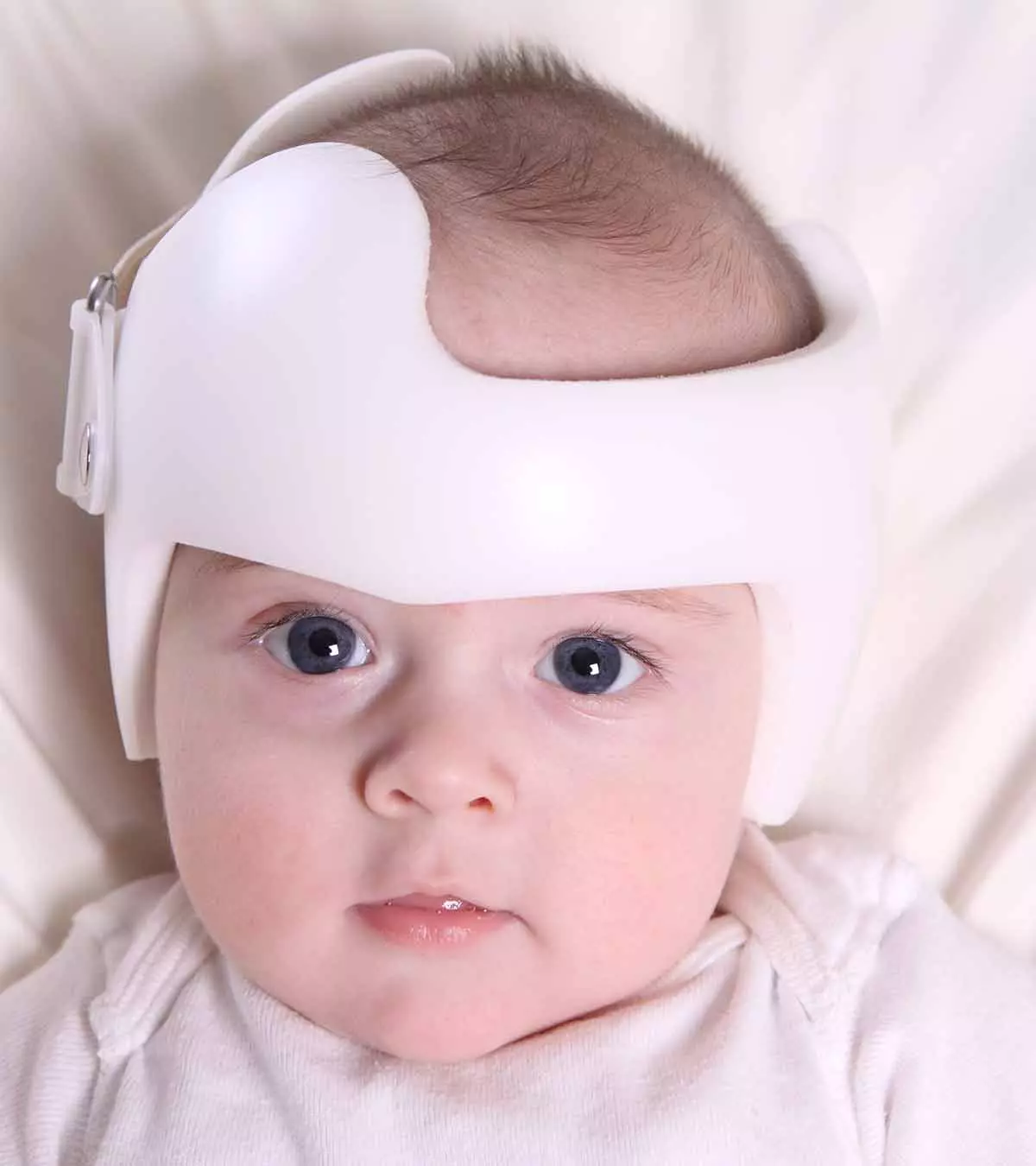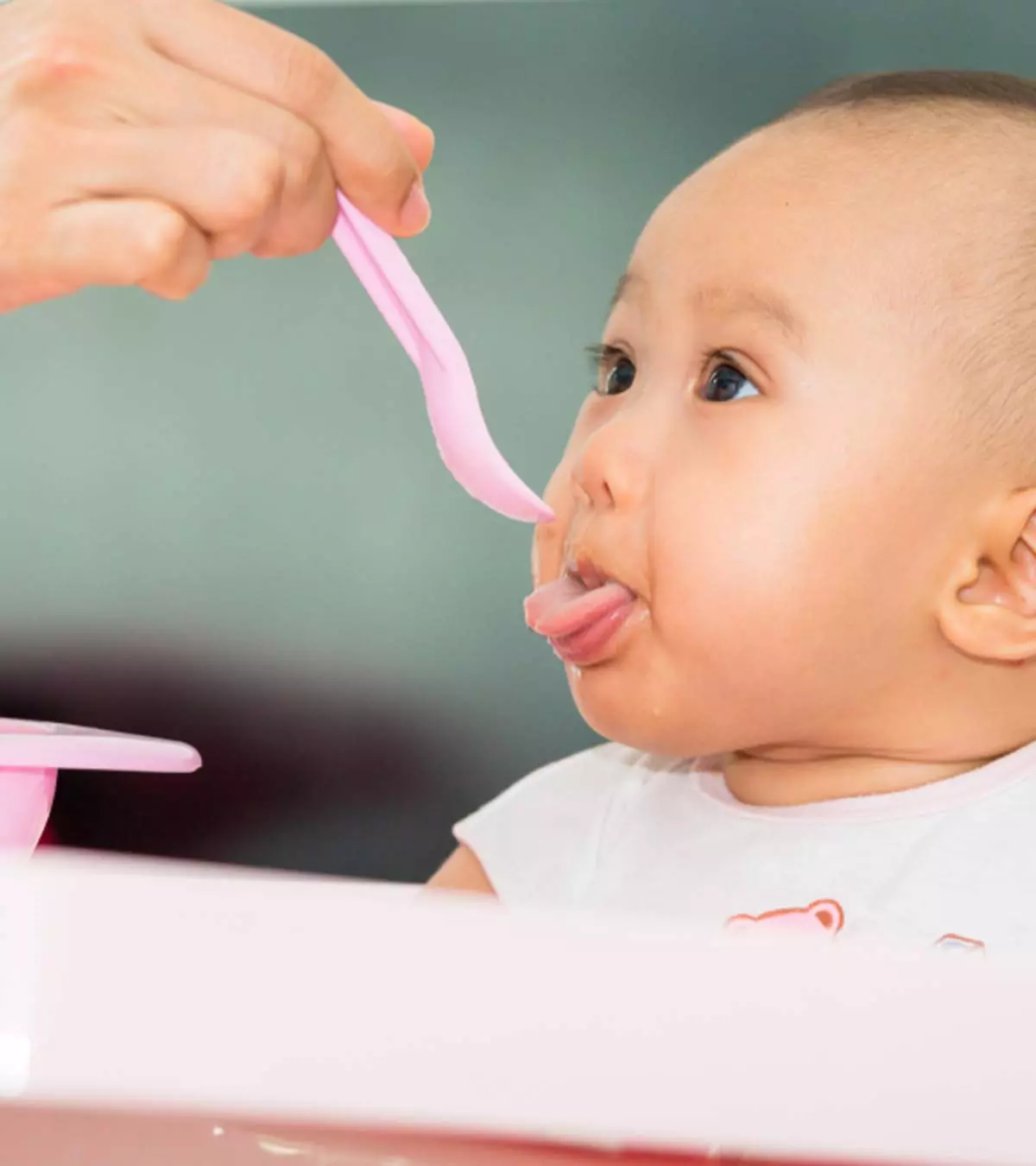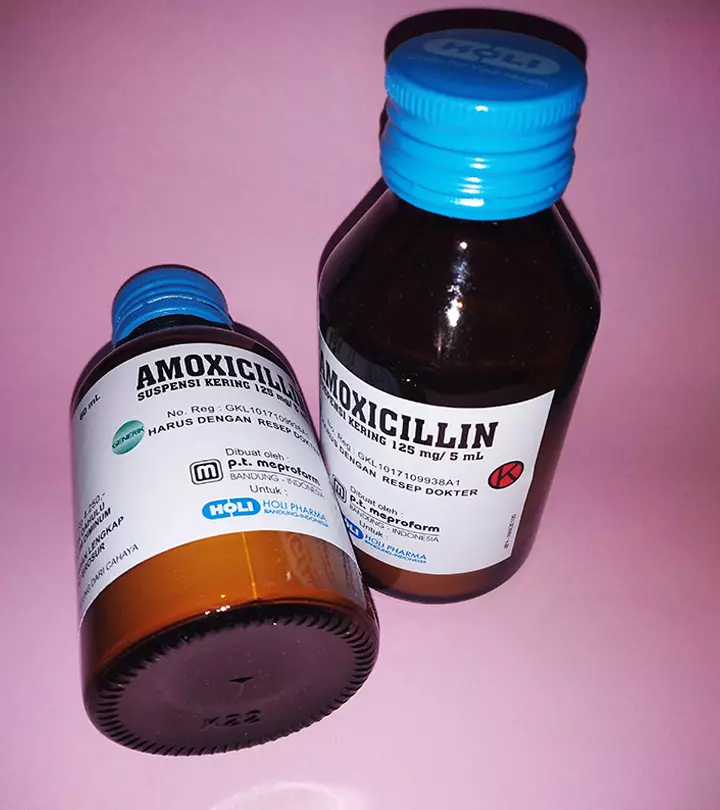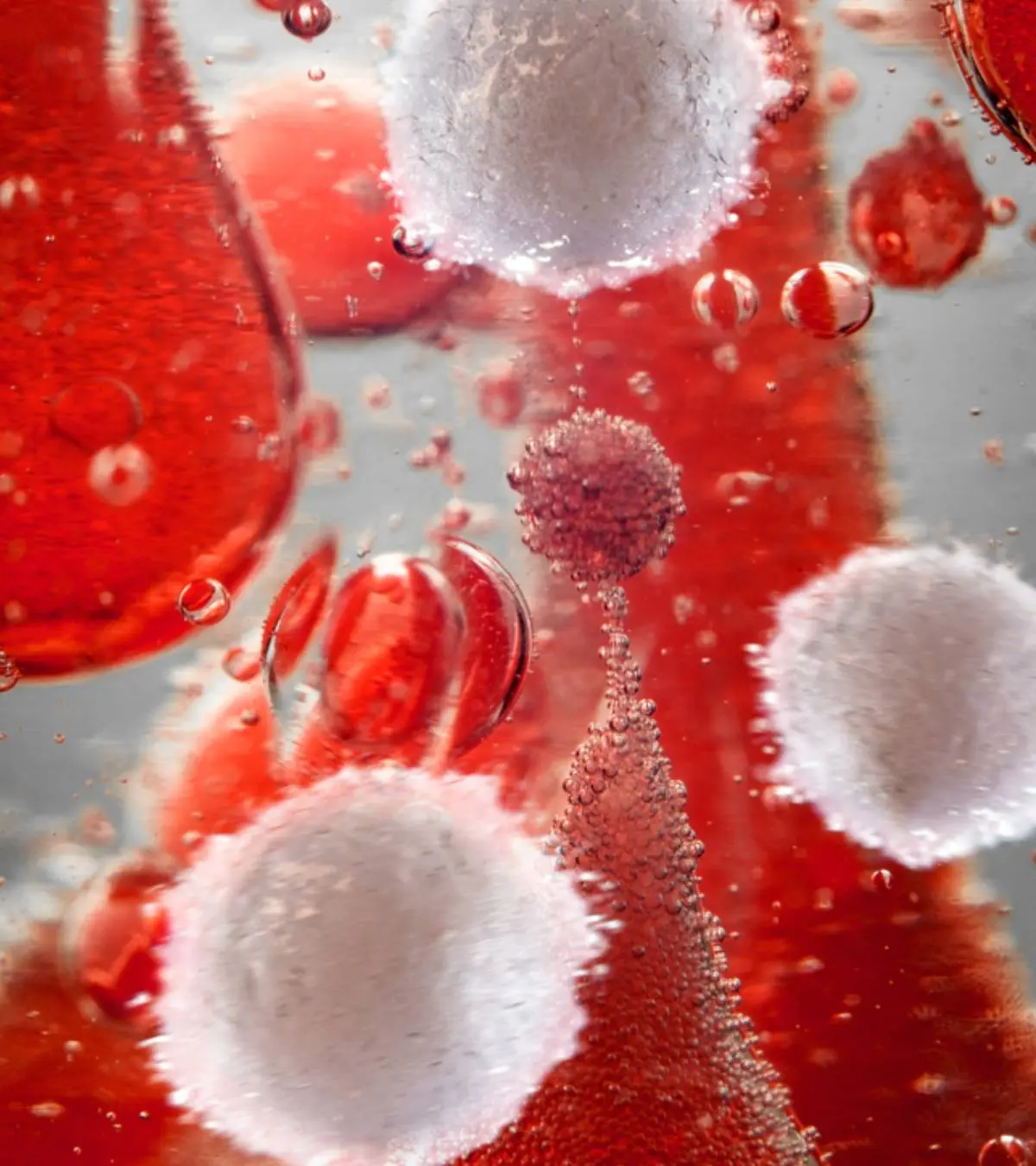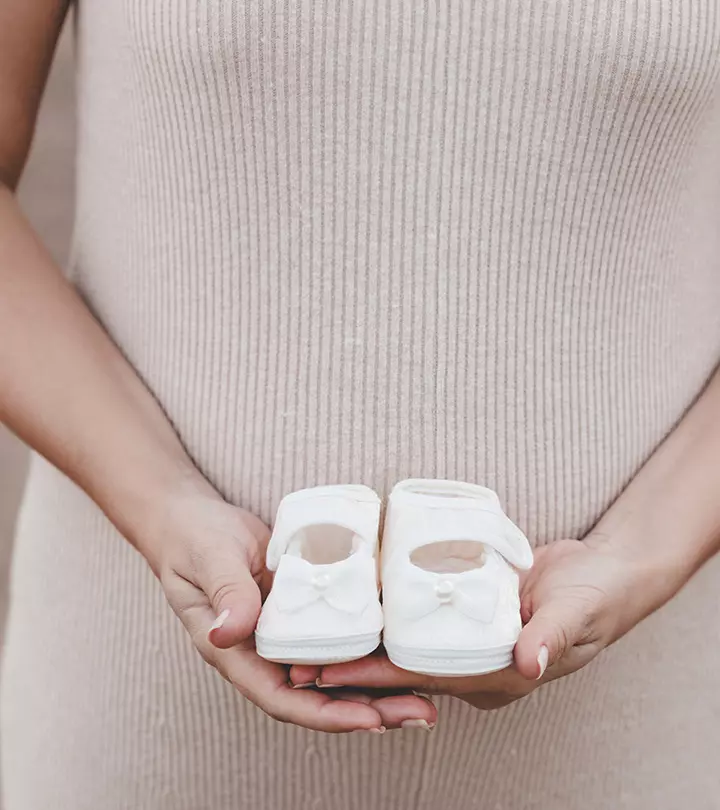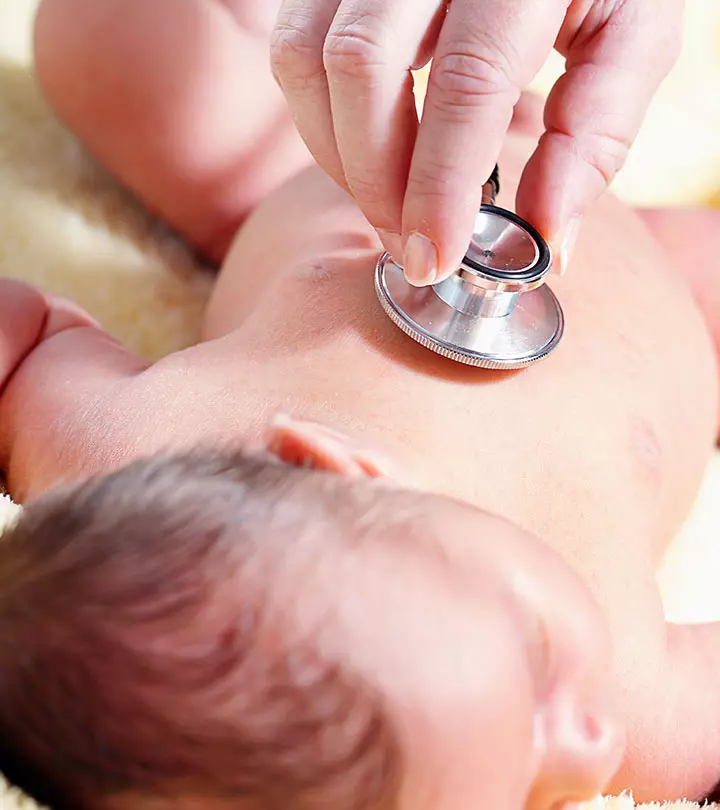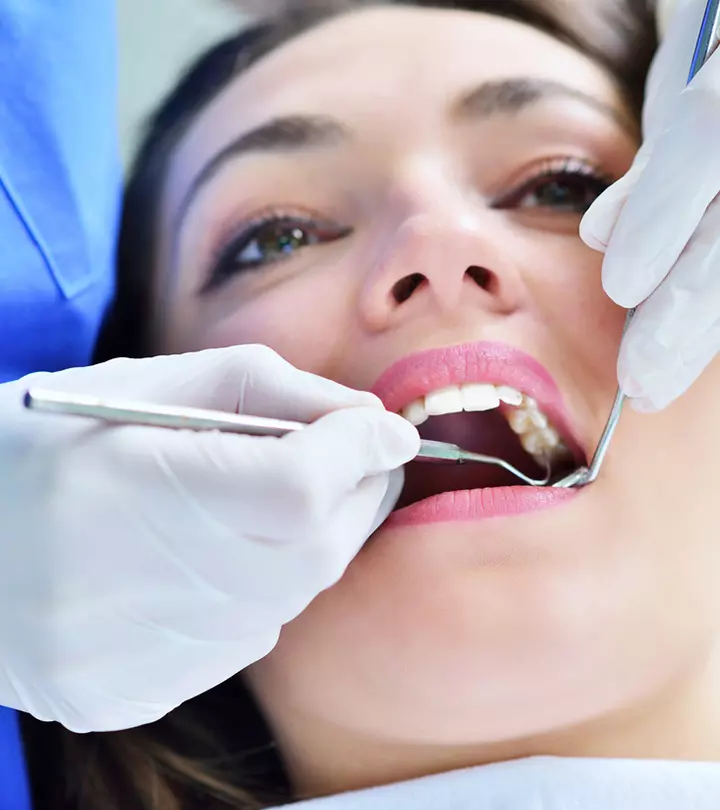
Image: iStock
Pregnancy gingivitis is characterized by inflamed or swollen gums (1). It could be painful during pregnancy and more susceptible to bleeding. When pregnant, hormonal changes lead to an increased blood flow to the gums that could make your gums more sensitive, swollen, and irritable (2).
According to the Centers for Disease Control and Prevention (CDC), almost 60-75% of pregnant women experience gingivitis. Read this post to learn about the causes, signs, treatment, and prevention of gingivitis during pregnancy.
Key Pointers
- Pregnancy gingivitis is characterized by sensitive, inflamed, and swollen gums.
- Factors including hormonal changes, poor oral hygiene, smoking, diabetes, and improper diet may increase the risk of gingivitis.
- Untreated gingivitis may progress to periodontitis, leading to potential complications such as premature birth or low birth weight in infants.
- Treatments for gingivitis may include deep dental cleaning, local anesthetic oral gels, or gum surgery if other methods prove ineffective.
- Limiting the consumption of sugary drinks and sweets, avoiding smoking, and refraining from using mouthwashes that contain alcohol may help prevent pregnancy gingivitis.
Causes Of Gingivitis In Pregnancy
The following factors may cause gum diseases.
- Skipping oral care: Pregnancy can lead to exhaustion, and many women may skip brushing and flossing at night. It can lead to bacteria and plaque build-up, causing problems with gum health (3).
- Hormonal changes: Diminished estrogen or modified estrogen metabolism may lead to alterations in gum health during pregnancy (4).
- Smoking: Smoking during pregnancy may lead to periodontal diseases in expecting mothers (5).
- Diabetes: The risk of periodontal diseases is three to five times more in people with diabetes when compared to non-diabetic individuals (6). Mothers with gestational diabetes may be more prone to developing diabetes.
- Diet: Food cravings during pregnancy can make a woman binge on sugary or junk food. These food items can increase the bacterial growth in the oral cavity and may lead to gingivitis and other problems such as tooth decay (3).
 Quick fact
Quick fact
Image: Shutterstock
Signs And Symptoms Of Gingivitis During Pregnancy

Image: Shutterstock
Gum disease during pregnancy may bring along the following signs and symptoms (7).
- Red or swollen gums
- Pain in the gums
- Bleeding gums
- Sensitive teeth
- Difficulty in chewing
- Loose teeth
Home Care For Gingivitis During Pregnancy
Some home grooming habits can help manage gingivitis at home and maintain optimum oral health (7).
1. Dental care

Image: Shutterstock
- Regular brushing
- Gargles
Brushing your teeth with a soft bristle brush or a gentle electric toothbrush can help remove the plaque gently.
Coupling it with fluoridated toothpaste can help in preventing dental decay as well.
 Caution
Caution- Flossing
Using the correct technique to floss between your teeth can aid in the removal of plaque and oral bacteria.
Proper brushing and dental flossing can reverse the inflammation of gingivitis.
- Mouth washing
Using alcohol-free mouthwash can help in reducing the bacterial load in the oral cavity.
- Gargling
Gargling with a solution of sea salt and water (1:1 ratio) helps in reducing gum inflammation and gum healing.
2. Vitamin-rich food

Image: Shutterstock
- Vitamin A
Eat foods rich in vitamin A such as carrots, spinach, sweet potatoes, mango, apricots, cheese, eggs, milk, yogurt, and oily fish. Vitamin A fights gum diseases. However, it is essential to monitor the intake of vitamin A during pregnancy as an overdose can be harmful to the developing fetus (8) (9).
- Vitamin C
Including foods rich in vitamin C during pregnancy, such as lemons, lime, peppers, strawberries, broccoli, and brussels sprouts help control bacteria build-up and control gingivitis (7) (10).
 Quick tip
Quick tipSigns You Need To See A Dentist
Having regular dental checkups with your dentist is crucial. Nonetheless, you must reach out to your dentist if you encounter any of the symptoms below:
- Toothache
- Painful gingiva (painful gums)
- Persistent bad breath
- Loose teeth
- Gingival growths in the mouth
- Numbness of mouth
Let your doctor know about your pregnancy, even if you have not told your friends or family about it. Your doctor needs to be aware of your pregnancy status to ensure safe and appropriate dental treatment for you.
Complications Of Pregnancy Gingivitis
Untreated gingivitis may lead to infection of the supporting bone and resulting tooth loss
(2). It may lead to periodontitis, a serious issue involving gum inflammation and pocket formation around teeth, leading to bacterial infections (7).
It may also lead to a need for tooth extraction. At times, periodontitis is also associated with poor pregnancy outcomes, including premature birth and low birth weight. However, it is unclear why periodontitis leads to these complications (2).
Treatment For Pregnancy Gingivitis
If your home care is not enough and does not help cure gingivitis, you can visit your dentist.
- Professional deep cleaning methods like dental prophylaxis (dental cleaning) and dental scaling can help eliminate the thin film of the soft and hard deposits called plaque (7). While emergency dental care is safe at any stage in pregnancy, most dental treatment is safest in the second trimester (11). However, you may seek your Ob/Gyn’s consent before getting dental cleanup and polishing during pregnancy.

Image: Shutterstock
- The doctor may also prescribe some analgesics to deal with the pain.
- For severe bacterial infections, the dentist may recommend some safe antibiotics. It is advised to consult your Ob/Gyn before consuming any antibiotics while pregnant (12).
- Local anesthetic gels may be prescribed to numb the painful gums and prevent pain. These medicines are usually safe in pregnancy (12).
- If no intervention works, gum or dental surgery might be recommended as a last resort. Ensure you have a prenatal care provider’s consent before getting any oral surgery done (7).
Prevention Of Pregnancy Gingivitis
The following measures may help in preventing gingivitis (13).
- Avoid excessive sugary drinks such as juices and sugary tea.
- Avoid overconsumption of sweets.
- Snack on healthy foods such as vegetables, fruits, yogurt, nuts, or seeds for late-night hunger pangs or hunger between meals.
- Do not use mouthwashes that contain alcohol.
- Avoid smoking.
 Quick tip
Quick tipFrequently Asked Questions
1. Does pregnancy gingivitis go away?
Gingivitis in pregnancy is common, and it usually goes away after delivery. Maintaining good oral hygiene and routine dental visits during pregnancy help prevent or manage gingivitis in most women (14).
2. Can gingivitis harm my baby?
If not treated, gingivitis can lead to periodontitis and infection of soft tissue and bone supporting the tooth. This may result in preterm delivery and low birth weight in some babies. However, gingivitis alone may not harm the baby (14).
3. Are dental x-rays safe during pregnancy?
Dental x-rays are safe during pregnancy if correctly done. These may not cause direct x-ray beam exposure to reproductive organs or areas near the womb (15).
4. How long does gingivitis last?
Gingivitis can reoccur if oral hygiene is not maintained. Gum bleeding and tenderness due to gingivitis can be diminished within one to two weeks after professional cleaning and oral care at home. Antibacterial and warm salt water rinses could help lower symptoms (16).
5. Can I use mouthwash while pregnant?
You may use mouthwash to maintain dental hygiene. The American Academy of Pediatric Dentistry recommends that pregnant women use mouthwash to prevent swollen gums and cavities. You may choose mouthwashes that are triclosan-free, alcohol-free, and without artificial coloring during pregnancy (17).
6. Can gingivitis cause miscarriage?
There is no evidence from reliable studies showing that gingivitis is linked to miscarriage or preterm births (14).
7. What bacteria causes pregnancy gingivitis?
A study found that Fusobacterium nucleatum, Prevotella intermedia, Prevotella melaninogenica, and Porphyromonas gingivalis are some bacteria associated with pregnancy gingivitis (18).
Oral hygiene maintenance is important during pregnancy, and most dental treatments are safe to perform at this stage. If you plan to get pregnant, get your dental cleaning done in advance. Also, keep your Ob/Gyn informed about the medications and treatment suggested by your dentist.
Infographic: Ways To Prevent Pregnancy Gingivitis
Dental problems, such as gingivitis, often occur during pregnancy for several underlying reasons. While most cases are mild, they may cause discomfort. Check out the infographic below to learn about preventive measures to keep pregnancy gingivitis away.

Illustration: Momjunction Design Team
Illustration: Pregnancy Gingivitis: Signs Symptoms Causes And Treatment
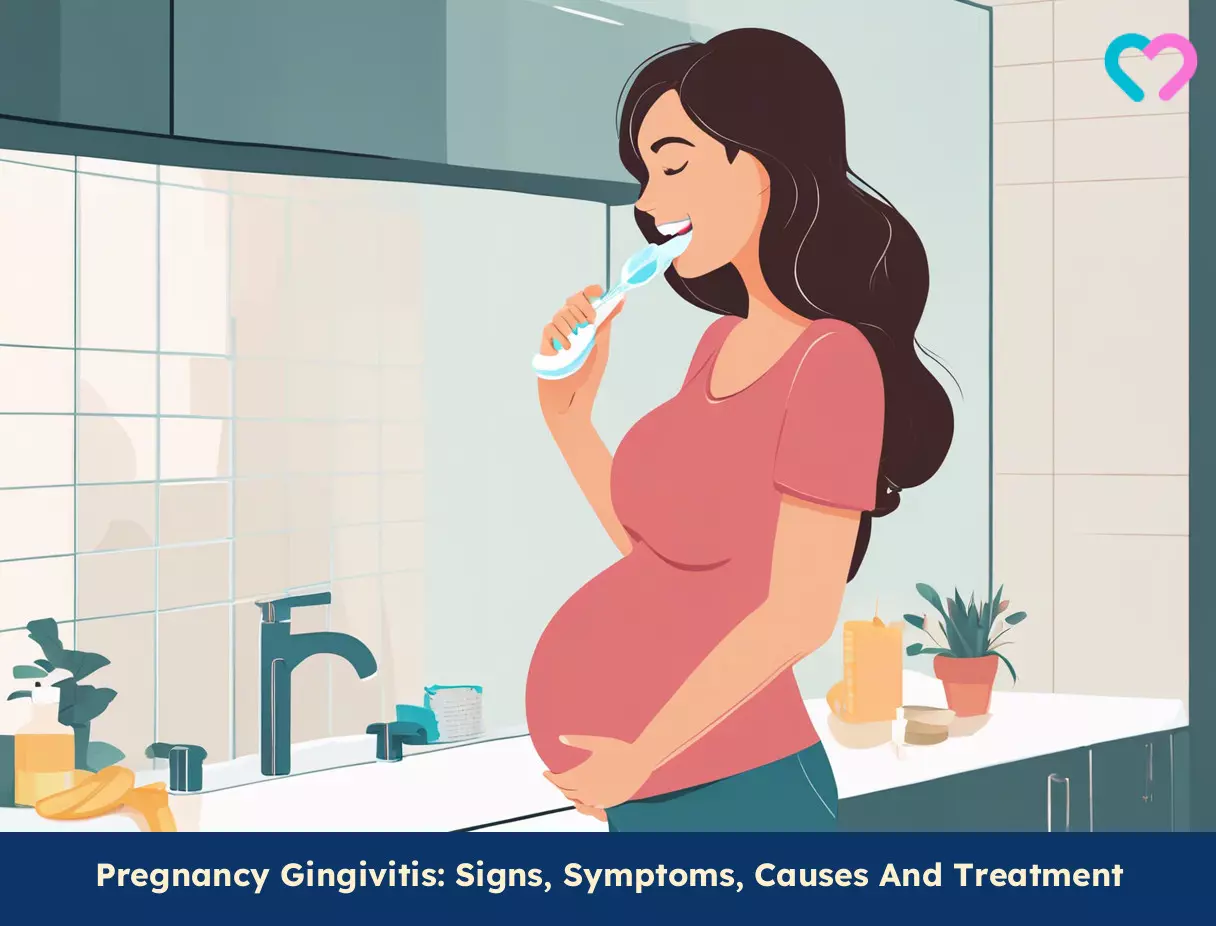
Image: Stable Diffusion/MomJunction Design Team
Learn how to prevent and cure pregnancy gingivitis with this helpful video! Get tips on proper oral hygiene and other treatments to keep your gums healthy during pregnancy.
References
- Swollen Gums During Pregnancy.
https://americanpregnancy.org/healthy-pregnancy/is-it-safe/swollen-gums-during-pregnancy/ - Talking to Pregnant Women about Oral Health.
https://www.cdc.gov/oral-health/hcp/conversation-tips/talking-to-pregnant-women-about-oral-health.html# - Brushing for Two: How Your Oral Health Affects Baby.
https://www.healthychildren.org/English/ages-stages/prenatal/Pages/Brushing-for-Two-How-Your-Oral-Health-Effects-Baby.aspx - Daniel EZiskin, Gerald JNesse; (2004); Pregnancy gingivitis: History, classification, etiology.
https://www.sciencedirect.com/science/article/abs/pii/0096634746901408 - H Boutigny, et al; (2005); Periodontal diseases, tobacco and pregnancy.
https://pubmed.ncbi.nlm.nih.gov/15980775/ - Monika Kalra, et al; (2016); Assessment of two-way relationship between periodontal disease and gestational diabetes mellitus: A case-control study.
https://journals.lww.com/ - Treat Gum Disease Naturally During Pregnancy.
https://americanpregnancy.org/healthy-pregnancy/pregnancy-health-wellness/treat-gum-disease-naturally-pregnancy/ - Vitamin A.
https://www.nhs.uk/conditions/vitamins-and-minerals/vitamin-a/ - Sabina Bastos Maia, et al; (2019); Vitamin A and Pregnancy: A Narrative Review.
https://www.ncbi.nlm.nih.gov/pmc/articles/PMC6470929/ - Vitamin C.
https://www.nhs.uk/conditions/vitamins-and-minerals/vitamin-c/ - Oral Health During Pregnancy.
https://www.aafp.org/pubs/afp/issues/2008/0415/p1139.html - DENTAL HEALTH DURING PREGNANCY.
https://www.marchofdimes.org/find-support/topics/pregnancy/dental-health-during-pregnancy - Bleeding gums.
https://www.nhs.uk/pregnancy/related-conditions/common-symptoms/bleeding-gums/ - Pregnancy Gingivitis.
https://my.clevelandclinic.org/health/diseases/22484-pregnancy-gingivitis#:~:text=Gingivitis%20is%20an%20inflammation%20ofvisit%20while%20you%20are%20pregnant - X-Rays Pregnancy And You.
https://www.fda.gov/radiation-emitting-products/medical-x-ray-imaging/x-rays-pregnancy-and-you - Gingivitis.
https://medlineplus.gov/ency/article/001056.htm - How To Choose A Safe Mouthwash During Pregnancy.
https://mamaschoice.sg/article/safe-mouthwash-during-pregnancy/ - Preethi Balan et al.; (2018); Keystone Species in Pregnancy Gingivitis: A Snapshot of Oral Microbiome During Pregnancy and Postpartum Period.
https://www.frontiersin.org/journals/microbiology/articles/10.3389/fmicb.2018.02360/full
Community Experiences
Join the conversation and become a part of our nurturing community! Share your stories, experiences, and insights to connect with fellow parents.
Read full bio of Dr. Shashwat Jani
Read full bio of Dr. Ritika Shah
Read full bio of Rebecca Malachi
Read full bio of Dr. Joyani Das







